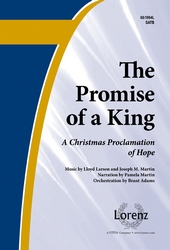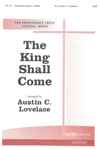- |
User Links
359
Give Thanks to God, Who Hears Our Cries
Hymn Information
- First Line
- Give thanks to God, who hears our cries
- Author
- Ruth Duck
- Tune Name
- MORNING SONG
- Harmonizer
- Jack Grotenhuis (1983)
- Tune Source
- J. Wyeth’s <i>Repository of Sacred Music</i>, 1813
- Topic
- The Cross · Cry to God · Grateful Living · Thankfulness
Copyright Information
- Text Copyright
- © 2011 GIA Publications, Inc.
- Tune Copyright
- Harm. © 1987 Faith Alive Christian Resources
- Reprint/Projection Information
- Words: Permitted with a license from OneLicense.net. If you do not own this license, please contact the copyright holder for permission.
- Music: Permitted with a license from CCLI.com or from OneLicense.net. If you do not own one of these licenses, please contact the copyright holder for permission.
Scripture References
Confessions and Statements of Faith References
Further Reflections on Confessions and Statements of Faith References
Voicing our thankfulness is the theme of this songs and the theme of Heidelberg Catechism, Lord’s Day 1, Question and Answer 2, which professes that God’s children can “live and die in the joy of this comfort,” when we know our sin and misery, know how we are set free in Christ, and especially know “how I am to thank God for such deliverance.”
Similarly, Heidelberg Catechism, Lord’s Day 32, Question and Answer 86 leads us to confess that our whole lives will “show that we are thankful to God for his benefits.”
This spirit is reinforced by Our World Belongs to God, paragraph 6 with its personal profession, “We rejoice in the goodness of God...”
359
Give Thanks to God, Who Hears Our Cries
Call to Worship
Our help is in the name of our God,
who made heaven and earth. Amen.
Sing to the Lord with thanksgiving.
Make music upon the harp.
How good it is to celebrate God’s presence
and sing praise throughout each day!
How good it is to sing praise and give honor to our God!
Our God rebuilds the people of earth.
The wandering ones are gathered together,
the brokenhearted are healed, the hungry are fed,
the prisoners are freed, the blind are given sight,
the lonely are befriended.
How good it is to sing praise and give honor to our God!
All of nature sings aloud the goodness of God—
clouds, rain, grass, creatures great and small.
Our God creates and sustains our world
with his ever-growing, never-ending love.
How good it is to sing praise and give honor to our God!
Grace and peace be yours in abundance
through the knowledge of God and of Christ Jesus, our Lord. Amen.
—based on Psalm 147; 2 Peter 1:2
—
Worship Sourcebook Edition Two
Additional Prayers
Good and loving God, in Jesus you know the paths your children walk
and all that can frighten and discourage us.
Make your presence real to us as we make our journey,
that at any time and in every circumstance
we may remember your blessings—and rejoice! Amen.
and all that can frighten and discourage us.
Make your presence real to us as we make our journey,
that at any time and in every circumstance
we may remember your blessings—and rejoice! Amen.
—
Psalms for All Seasons (http://www.psalmsforallseasons.org)
The following is a guide for extemporaneous prayers. The pattern provides a suggested text
for the opening and closing of each part of the prayer and calls for extemporaneous prayers of
thanksgiving, petition, and intercession.
God of all good gifts,
we come before you today with praise in our hearts
and thanksgiving on our lips.
We thank you for
the creation and the wonders of this world, especially . . .
our nation . . .
the community . . .
our work . . .
opportunities to learn . . .
this church . . .
the riches of our lives . . .
and the greatest gift of all, given through your Son,
our Savior and Redeemer.
Knowing that you desire to bless us with all good things,
we offer these intercessions:
for [world events] . . .
for the nations of the world . . .
for this nation and our government . . .
for our community and those in authority over it . . .
for the church universal, its mission, and those who minister . . .
for the churches of this community . . .
for our church in its ministry to . . .
for persons whom we know with particular needs, especially . . .
We pray this in the name of the triune God,
Father, Son, and Holy Spirit,
to whom all thanks and praise are due. Amen.
—
Worship Sourcebook Edition Two
Let us give thanks to God our Creator
for all the blessings we share this day.
For all of those who have gone before, people strong and brave,
willing to put their lives on the line for the causes they believe in,
we give you thanks.
Grant us, our God, the courage
to step out in faith for that which is true and right.
For freedom of speech and of the press,
for the avenues open to expressing ourselves,
for opportunities to effect change,
we give you thanks.
We pray for those who are voiceless victims of unjust governments.
For fertile soil, abundant rain, and seasons of refreshment,
we give you thanks.
We pray for those whose land is parched and whose wells are dry.
For our families, friends, and the church,
who provide us with food and drink for our journey,
we give you thanks.
We pray for those who are hungry and tired,
hopeless and wandering, finding no place to rest.
For strong bodies and minds,
for opportunities that encourage us to grow
and become more the servants of thanksgiving you call us to be,
we give you thanks.
We pray for the sick,
as well as for the stagnant who are unwilling to dream or change.
Help us, O God, to be responsible stewards of your blessings,
people who care for the earth and all its people.
Keep us connected with all humanity,
even though miles and cultures tend to separate us.
May we always respond to your call
with a true spirit of thanksgiving. Amen.
—
Worship Sourcebook Edition Two
359
Give Thanks to God, Who Hears Our Cries
Tune Information
- Name
- MORNING SONG
- Key
- f minor
- Meter
- 8.6.8.6.8.6
Recordings
Musical Suggestion
Performance option: all sing stanza 1; stanzas 2-5 sung by solo voices, bringing the congregation in to sing each final phrase beginning on the word “then”; all sing stanza 6.
—
Psalms for All Seasons (http://www.psalmsforallseasons.org)
359
Give Thanks to God, Who Hears Our Cries
Hymn Story/Background
MORNING SONG is a folk tune that has some resemblance to the traditional English tune for "Old King Cole." The tune appeared anonymously in Part II of John Wyeth's Repository of Sacred Music (1813). In 1816 it was credited to "Mr. Dean," which some scholars believe was a misprinted reference to Elkanah K. Dare, a composer who contributed more than a dozen tunes to Wyeth's Repository. In the original harmonization the melody was in the tenor. The tune is also known as CONSOLATION (and KENTUCKY HARMONY), its title in Ananias Davisson's Kentucky Harmony (1816), where it was set to Isaac Watts' morning song, "Once More, My Soul, the Rising Day."
Jack Grotenhuis composed the harmonization in Tempe, Arizona, in late November 1983 (a few weeks before his death in a traffic accident). The Episcopal Hymnal 1982 provides two additional settings. The music is suitable for either unison singing (especially on st. 1, 5) or part singing (especially on st. 2-4). The tune requires a sense of two long phrases rather than four short ones.
—
Bert Polman
Author Information
Ruth Duck (b. 1947), is a professor of worship at Garrett-Evangelical Theological Seminary in Evanston, Illinois. Her powerful texts have emerged as the major part of the cutting edge of language that speaks of God in universal terms and in poetry that is as poignant as it is stoic. GIA Publications, Inc. has published fifty-eight of her texts in the collection Dancing in the Universe (G-3833). Seven of them are also set in octavo form.
Before coming to Garrett in 1989, she served as pastor at United Church of Christ parishes in Illinois, Wisconsin, and Massachusetts. Her undergraduate work was done at Southwestern-at-Memphis University, which is now called Rhodes College.
She holds two masters degrees—one from Chicago Theological Seminary and one from the University of Notre Dame. Her doctorate in theology was earned at Boston University. Her academic credentials are weighty ones and balance beautifully with her pastoral experience dealing with the everyday tasks as the spiritual leader of a parish community.
—
GIA Publications, Inc. (http://www.giamusic.com)
Composer Information
A printer by trade, J. Wyeth (b. Cambridge, MA, 1770; d. Philadelphia, PA, 1858) is important in the history of hymnody as a compiler and publisher of early shape-note tunebooks. He worked briefly in Santa Domingo but had to flee when a revolt occurred. In 1792 he settled in Harrisburg, Pennsylvania, where he lived for much of the rest of his life. A Unitarian, he was coeditor for some thirty-five years of the Federalist newspaper Oracle of Dauphin, a prominent source of news and opinion. Not a musician himself, Wyeth published Repository of Sacred Music (1810) and, with the help of Methodist preacher and musician Elkanah Kelsay Dare, Repository of Music, Part Second (1813). Intended for Methodist and Baptist camp meetings, these tune books contained a number of anonymous folk tunes as well as music by a number of composers, including William Billings. The two volumes influenced the next generation of tunebooks, such as Southern Harmony, and a number of the folk tunes have survived as hymn tunes in various modern hymnals.
—
Bert Polman
Jack Grotenhuis (b. 1983; d. 1983) studied music at Dordt College, Sioux Center, Iowa, and the University of lowa, and taught music at Lynden Christian High School, Lynden, Washington, from 1979 to 1981. Like his father, Dale Grotenhuis, his main interest was in choral music, but he also loved jazz. He had almost completed his doctoral program in choral music at the University of Arizona when he died in a traffic accident.
—
Bert Polman
Suggestions or corrections? Contact us


 My Starred Hymns
My Starred Hymns






